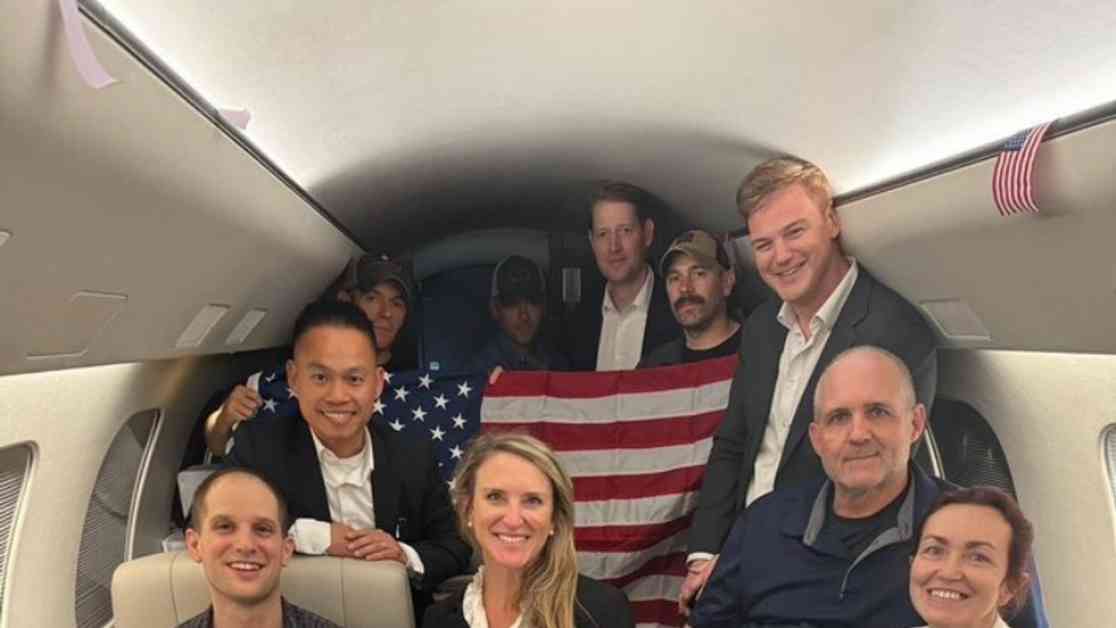A significant prisoner swap recently took place between Russia and the West, resulting in the release of high-profile individuals held in Russia, including British citizen Vladimir Kara-Murza, US journalist Evan Gershkovich, and former US Marine Paul Whelan. This exchange, involving around two dozen individuals from various countries, has been described as the largest since the Cold War.
President Joe Biden hailed this prisoner swap as a remarkable diplomatic achievement, emphasizing the end of the brutal ordeal for the American detainees and expressing immense relief for their families. The negotiations for this exchange began almost four years ago during the transition into the Biden administration, and the recent release marks the culmination of extensive efforts to bring home wrongfully detained individuals.
The history of prisoner swaps between Russia and the West dates back to the Cold War era, with notable exchanges taking place on the Glienicke Bridge and in locations like Vienna and Ankara in more recent times. The complex negotiations involved multiple countries and spanned over a year, leading to the successful release of individuals from both Russian custody and Western prisons.
Among those released from Russian imprisonment were Evan Gershkovich, who was arrested in 2023 on espionage charges, and Paul Whelan, a former US Marine accused of espionage in Russia. Vladimir Kara-Murza, a dual UK-Russian citizen held on politically motivated treason charges, was also among the released prisoners. Additionally, Vadim Ostanin, an associate of Alexei Navalny convicted on extremism charges, regained his freedom as part of the exchange.
From the Western side, the release of Russian hitman Vadim Krasikov, serving a life sentence in Germany for a 2019 killing, marked a significant aspect of the prisoner swap. This exchange, involving a total of 25 individuals released from both Russian and Western prisons, signifies a major diplomatic achievement and is expected to be highlighted as a significant foreign policy success in an election year.
The successful negotiations and release of these individuals represent a positive development in the ongoing diplomatic relations between Russia and the West. The involvement of multiple countries and the complex nature of the exchange underscore the importance of international cooperation in resolving such sensitive matters. The families of the released individuals expressed immense relief and gratitude for their loved ones’ safe return, emphasizing the significance of diplomatic efforts in securing their freedom.












